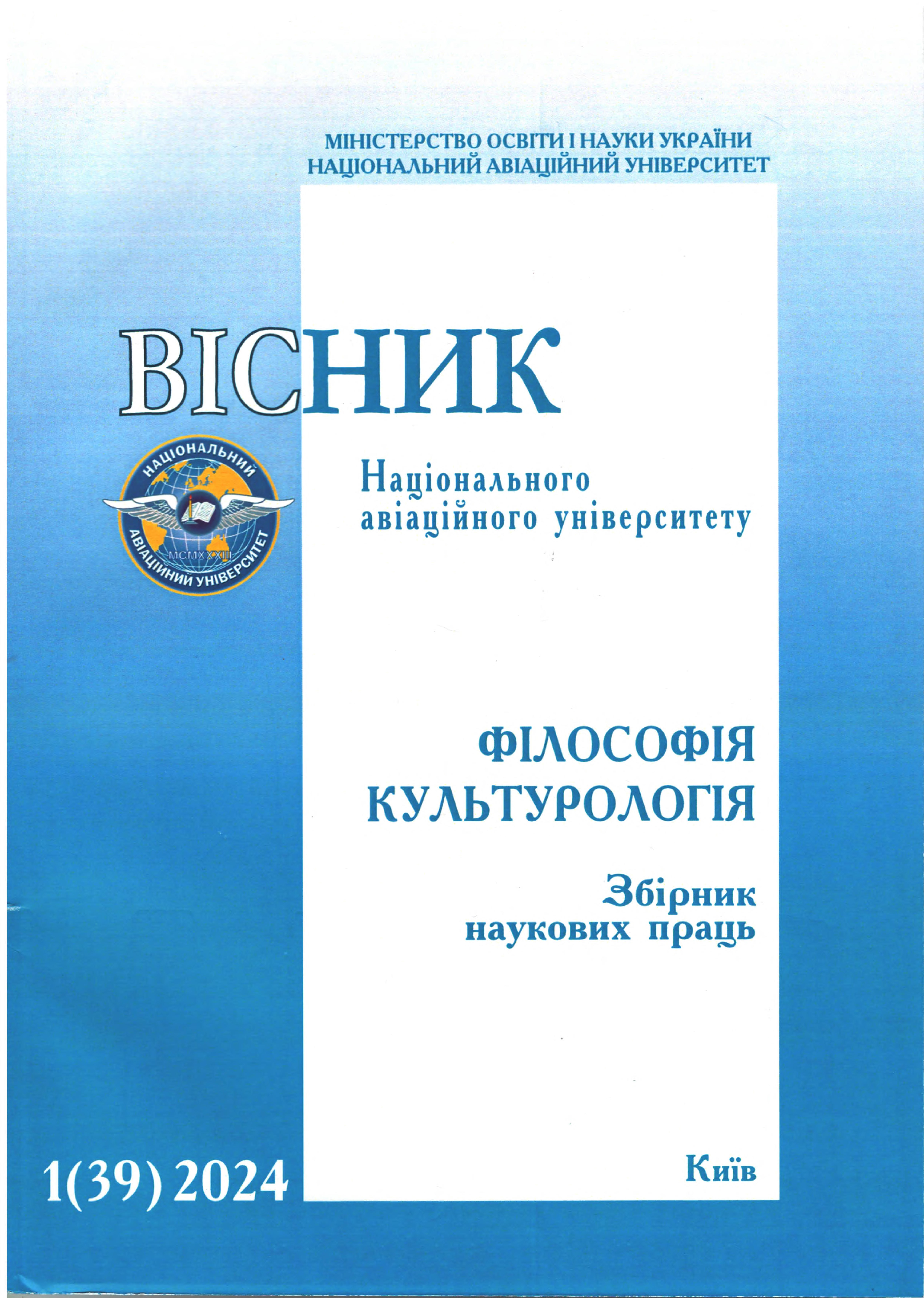SCIENTIFIC COMMUNICATION IN COMPLEX SOCIAL CONTEXTS: APPROACHES FROM THE SOCIAL PHILOSOPHY OF SCIENCE AND SOCIAL EPISTEMOLOGY
DOI:
https://doi.org/10.18372/2412-2157.39.18442Keywords:
scientific communication, context, social philosophy of science, social epistemology, trust, epistemic agent, group belief, interdisciplinarity, transdisciplinarityAbstract
Introduction. Science is an important social institution that not only provides forms of functioning and use of knowledge, but also provides scientific communication. In the modern context, the forms of collective activity of scientists are changing. There is a need to develop new forms of communication. This research revitalizes philosophical-methodological and social-epistemological reflections on the problems of scientific communication, aiming to uncover mechanisms for overcoming communicative differences. The aim and tasks of the research is to identify methodological and epistemic mechanisms and procedures of agreed decisions for scientific communication. Research methodology. The methodological basis of the research is the approaches of social philosophy of science and social epistemology. These approaches allow building and using interdisciplinary and transdisciplinary bridges in clarifying the processes of scientific communication. Research results. The processes of changing the disciplinary structure of science and the turn to interdisciplinary and transdisciplinary methodology are considered. The possibilities and features of both methodologies are analyzed. Research attention is focused on identifying the interaction of methodological and epistemic practices in scientific communication. Additionally, it highlights the significant societal trust in scientists and explores the underpinnings of this confidence. Discussion. The peculiarities of scientific communication are represented within the approaches of social philosophy of science and social epistemology. Research attention is focused on revealing the relevance of methodological and epistemic practices of scientific communication. Examples of situations of epistemic agreement/disagreement, trust/distrust are given in order to identify mechanisms and procedures for collective/group decision-making. Conclusions. Social philosophy of science and social epistemology describes scenarios for complex contexts where epistemic subjects interact to establish trustworthy and reliable knowledge. That is why values of knowledge, trust, disagreement is in the center of current research. Philosophical-methodological and epistemological understanding of the ways of establishing scientific communication both within the scientific community and in the interactions between science and society are presented.
References
Clemence M. Politicians are the least trusted profession, while doctors and scientists are seen as the most trustworthy. IPSOS. 2023. October 24.
Goldman A. A Guide to Social Epistemology. Social Epistemology: Essential Readings, 1st Edition, by A. Goldman (ed.), D. Whitcomb (ed.). 2011. Р. 11-37;
Goldman А. Group Knowledge Versus Group Rationality: Two Approaches to Social Epistemology. Episteme. 2004. Vol. 1. Р. 11-22.
Elga A. Reflection and Disagreement. Social Epistemology: Essential Readings, 1st Edition, by A. Goldman (ed.), D. Whitcomb (ed.). 2011. Р. 158-182.
Kitcher Ph. The Division of Cognitive Labor. Journal of Philosophy. 1990. (87). Р. 5-22;
Kitcher Ph. The Advancement of Science. New York: Oxford University Press. 1993.
Lackey J. Essays in Collective Epistemology. Oxford: Oxford University Press. 2014.;
Lackey J. The Epistemology of Groups. Oxford: Oxford University Press. 2021.
List Chr. Group Knowledge and Group Rationality: a Judgment Aggregation Perspective. Social Epistemology: Essential Readings, 1st Edition, by A. Goldman (ed.), D. Whitcomb (ed.). 2011. Р. 221-242.
Luhmann N. The Improbability of communication. International social science journal. 1981. XXXIII,1. Р. 122-131.
Pettit Ph. Groups with Minds of Their Own Social Epistemology: Essential Readings, 1st Edition, by A. Goldman (ed.), D. Whitcomb (ed.). 2011. Р. 243-268.
Zollman K. The Communication Structure of Epistemic Communities. Social Epistemology: Essential Readings, 1st Edition, by A. Goldman (ed.), D. Whitcomb (ed.). 2011. Р. 338-350.
Дротянко Л. Г. Міждисциплінарні дослідження в контексті розвитку високих технологій. Вісник Національного авіаційного університету. Серія: Філософія. Культурологія: Збірник наукових праць. Вип. 2 (26). 2017. С. 5-8.
Шашкова Л. О. Трансдисциплінарні перспективи експериментальних практик наукового мистецтва. Вісник Національного авіаційного університету. Серія: Філософія. Культурологія: Збірник наукових праць. Вип. 2 (26). 2022. С. 36-40.

